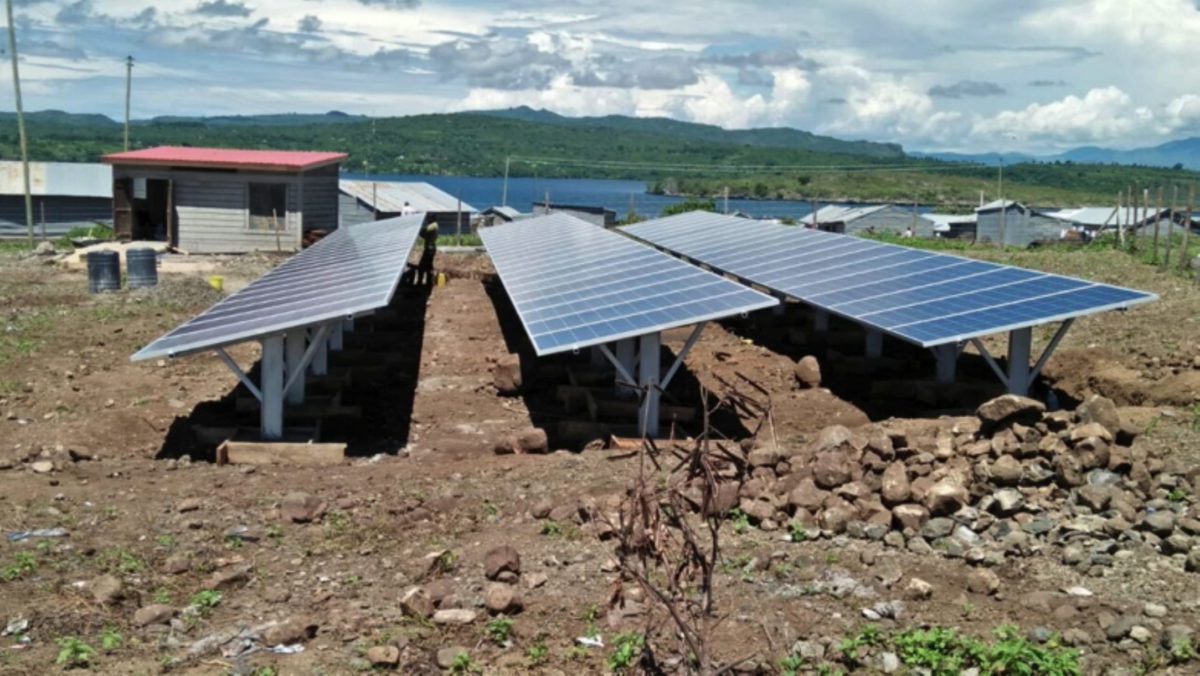GE and Renewvia Energy have separately announced plans for solar hybrid systems and microgrids in the Democratic Republic of Congo (DRC) and Kenya, respectively.
GE has partnered with Bboxx to supply a solar battery storage system to be coupled with diesel generators. The system was installed in Goma in the DRC, near the Rwandan border. During the first stage of the project, GE Hybrid Distributed Power (HDP) used Bboxx batteries connected to the Kivu International School, with more customers set to be connected to the mini-grid in the coming weeks.
A GE press announcement highlighted the system will feature a unique connection between the company’s Predix digital remote monitoring and diagnostics platform and Bboxx’s Pulse platform. The companies say this will enable proactive troubleshooting, by making use of predictive analytics and big data.
Bboxx says it has set itself the target of improving energy access for residential and commercial applications and will install systems between 50 W and 5 kW in size.
“Many businesses and small organizations in the DRC, and across the developing world, do not have a reliable, affordable way of maintaining electricity supply. Hybrid distributed power and microgrid technology provide one solution to solve this pressing problem, by delivering an on-grid experience in an off-grid setting,” said Mansoor Hamayun, CEO and co-founder of BBOXX.
Powering Islands
Renewvia Energy said it had installed two microgrids to power 10,000 residents on the islands of Ndeda and Ringiti, in Kenya’s Lake Victoria. The company says the microgrids are part of a 1.5 MW scheme comprising eight such networks, to be built in partnership with the U.S. Trade and Development Agency.
The two projects have a total system capacity of 30 kW and will replace the need for kerosene and petrol stoves and generators – previously the only source of energy on the islands. The project features Renewvia’s mobile payment platform, which uses M-PESA and the Commercial Bank of Africa to realize transactions. The company says this will ensure a higher degree of community engagement and local revenue streams.
The project is reportedly enjoying a high level of popularity. “Within the first few weeks of turning on the power, we had several members from the community and business subscribers signing up and prepaying to be connected,” said Pam Onyanyo, a Renewvia Director and head of the company’s Kenya operations. “We expect to see exponential growth over the next twelve months, and with several other microgrid facilities in the works, this is just the beginning.”
Universal energy supply
According to a BloombergNEF report published this year, large oil and energy companies such as Shell have in-house teams to build microgrids and sell solar home systems at scale. The report stated six of the 20 largest oil and energy companies have made commitments to deliver energy access to 52 million people by 2020. These efforts would underline the economic case for microgrids.
Analysts say the market for solar home systems and microgrids will be worth $64 billion by 2030. With around 15% of the people without access to electricity living in urban areas, utilities will focus on extending the grids to these areas, the analysis predicts.
However by the mid-2020s, decentralized technologies will have established supply chains and cheaper components, say forecasters. At that point, there will be fewer regions in which competition between grid extension and microgrids is economically viable. Based on such assumptions, the Bloomberg team holds that of 238 million households receiving electricity supply up to 2030, 72 million will use solar home systems and 34 million will source energy from microgrids.
This content is protected by copyright and may not be reused. If you want to cooperate with us and would like to reuse some of our content, please contact: editors@pv-magazine.com.




By submitting this form you agree to pv magazine using your data for the purposes of publishing your comment.
Your personal data will only be disclosed or otherwise transmitted to third parties for the purposes of spam filtering or if this is necessary for technical maintenance of the website. Any other transfer to third parties will not take place unless this is justified on the basis of applicable data protection regulations or if pv magazine is legally obliged to do so.
You may revoke this consent at any time with effect for the future, in which case your personal data will be deleted immediately. Otherwise, your data will be deleted if pv magazine has processed your request or the purpose of data storage is fulfilled.
Further information on data privacy can be found in our Data Protection Policy.